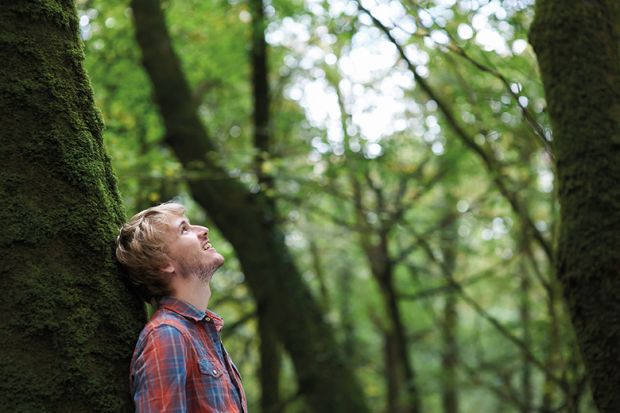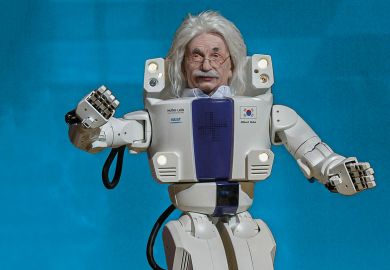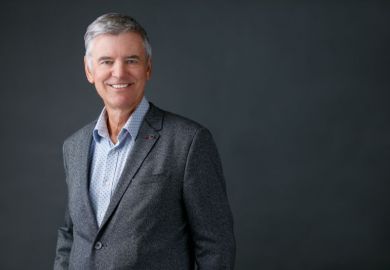As it has done for so many, college transformed me.
It started on freshman move-in day. My dad, my brother and I drove four and a half hours from my small town of 300 people in rural Minnesota to Madison, the state capital of Wisconsin. As a first-generation college student, I knew the university only through televised sports. I hadn’t even visited Madison before, never mind the campus, so I was astonished by the grandeur of the city, the beauty of the lakes surrounding the campus and the expansive cultural life scattered throughout.
As time went by, I tasted unfamiliar flavours at ethnic restaurants, saw unimagined paintings at art museums and rubbed shoulders with people who had passions and perspectives unlike any I had ever encountered. And I couldn’t believe I was being taught by renowned experts who raised deep issues and facilitated far-reaching discussions about ideas way beyond anything I previously realised even existed.
I enrolled in what was to become my favourite college course – environmental science – during my second year. I knew little about it at the time, but I absolutely loved the weekly required lab, usually consisting of a field trip. One especially stands out. We met at our professor’s home on the edge of a wetland outside Madison. It was a cold, January afternoon and there was at least six inches of snow on the ground. The professor led us to a bubbling brook in which I was stunned to find vibrant, green watercress growing. He picked some for us to taste, a simple act that boggled my mind. Not only did I not know that any vegetable grew in such harsh conditions, I was dumbfounded by the watercress’ peppery, fresh flavour and icy, crisp texture. This course, more than any other experience I’ve ever had, nurtured in me a love of nature and a commitment to conservation.
After four years, my mind had expanded in ways that made me almost unrecognisable from the person I had been before. In retrospect – and knowing what I know now – I believe this is because college regularly exposed me to feelings of awe.
According to Dacher Keltner’s new book, Awe: The New Science of Everyday Wonder and How It Can Transform Your Life, awe “is the feeling of being in the presence of something vast that transcends your understanding of the world”. Physiologically, awe can bring tears to our eyes, chills to our bodies and goosebumps to our skin. Kelter’s research suggests it can also make us less egocentric, improve our sense of well-being and interpersonal connection, and might even decrease inflammation in the body.
Less research has explored how awe affects learning and development, but a deeper inspection of how this emotion is thought to work yields some clues. According to the great psychologist Jean Piaget, our minds grow through two interrelated processes: assimilation and accommodation. When we assimilate, we fit new experiences into our existing mental frameworks. An essential aspect of awe is that it doesn’t allow for immediate assimilation, so we’re absorbed in trying to accommodate it, reducing the discrepancy between our new knowledge and our pre-existing knowledge.
This can require an expanded or entirely different mental framework that might, in turn, significantly change how we think, what we believe and, potentially, even how we self-identify. We might never fully accommodate an experience, but our lives can still be taken in different directions as we explore new questions or new passions.
Keltner describes eight sources of “everyday wonder”. These are: exposure to lives and acts of moral beauty; the collective effervescence of big events; various features of the natural world; music; visual design; great mysteries that often underlie religion and spirituality; the beginning and end of life; and ideas and truths that stretch our minds beyond what we previously believed was possible. Such phenomena often inspired our academic disciplines in the first place, of course. And they can be used to cultivate transformational educational experiences.
Many high-impact educational practices – such as service learning, internships, field trips, community events and study-abroad programmes – can promote awe, and we would do well to prioritise them. Colleges should also create spaces for students to encounter and ponder vast stimuli; this might include research with a faculty member, capstone projects or intensive opportunities to write or reflect.
As a faculty member, I’ve tried to identify sources of awe I could feature in my courses or my broader work on campus. In my psychology courses, this often involves bringing students into contact with other people who can share what it’s like to live with a mental illness, endure other kinds of great suffering or come from a different background or belief system. On campus, I have coordinated interfaith panel discussions and hosted many events and presentations about the Holocaust. I’ve also led student travel in the context of unique courses, including a trip to concentration camps as a part of a course in the psychology of the Holocaust. These experiences aren’t just life-changing for students. Chaperoning students through a three-hour tour of Auschwitz is something I’ll never forget.
Although questions remain about how awe can be incorporated across different kinds of colleges and courses, it does seem vital to me that students directly encounter meaningful, vast stimuli that stretch them. If the mission of a liberal education is to transform, we should do all we can to nurture awe on and off campus.
Andy Tix is an instructor in the department of psychology at Normandale Community College in Bloomington, Minnesota. He regularly blogs at Psychology Today.
Register to continue
Why register?
- Registration is free and only takes a moment
- Once registered, you can read 3 articles a month
- Sign up for our newsletter
Subscribe
Or subscribe for unlimited access to:
- Unlimited access to news, views, insights & reviews
- Digital editions
- Digital access to THE’s university and college rankings analysis
Already registered or a current subscriber?








